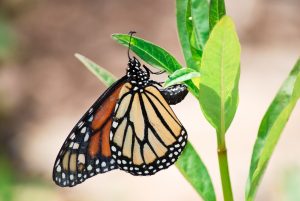Conservation In Action
Through Topeka Zoo and Conservation Center, patrons see tangible conservation efforts. The research supported by Topeka Zoo enables zoos all over the world to collaborate and help further the mission of conservation.
Topeka Zoo enriches the community through wildlife conservation and education. The zoo’s Conservation Committee helps to guide the organization towards practicing, promoting, and supporting conservation at home and around the globe. Our conservation work takes many forms including hands-on conservation work in the field by zoo staff, funding efforts of organizations, making our own facilities greener, and using our animal collection to improve conditions for endangered animals through research in cooperation with other zoos.
AZA Managed Programs
The mission of an AZA Species Survival Plan® (SSP) Program is to cooperatively manage specific species within AZA-accredited zoos and aquariums, certified related facilities, and sustainability partners. In order to be an SSP, a population must meet requirements related to genetic diversity, population number, and the number of institutions that have that species at their facility.
Each SSP maintains a studbook that is maintained by a studbook keeper. This document provides information about the lineage, reproductive history, and transfers of each individual animal in a species population.
Topeka Zoo and Conservation Center participates in several SSPs including:
Cape Porcupine
Lion
African Elephant
Asian Elephant
Bali Myna
Nicobar Pigeon
North American River Otter
Red-and-yellow Barbet
Red-capped Cardinal
Blue-crowned Motmot
Giraffe
River Hippopotamus
Bornean Orangutan
Scarlet Ibis
African Painted Dog
Violaceous Turaco
Silver-beaked Tanager
Blue-grey Tanager
Golden Lion Tamarin
Southern Three-banded Armadillo
Sumatran Tiger
Grey Crowned Crane
Hoffmann’s Two-toed Sloth
Trumpeter Swan
Lesser Madagascar Hedgehog Tenrec

Monarch Butterfly Citizen Science at Zoo
Monarch Conservation
The loss of habitat available to monarchs has been measured at approximately 6,000 acres per day across the U.S. or 2.2 million acres each year.
Topeka Zoo is leading the charge to provide more habitat for monarch butterflies in the form of butterfly gardens on and off grounds. Topeka Zoo currently has 14 butterfly beds, covering 6,383 square feet of space, offering monarchs milkweed as their larval plants and flowering plants for nectar to feed adults. The zoo is also currently pursuing off-grounds sites to establish even larger monarch-friendly beds in the community.
We are also coordinating the efforts of accredited zoos across Kansas. Education is key to raising the level of awareness about the challenges monarchs face, and to inspiring citizens across Kansas and throughout monarch migration routes to plant more monarch-friendly larval and nectar plants (milkweed and flowering plants) to provide more habitat for monarchs.
YOU CAN HELP!
For the eighth year in a row, the Kansas Museum of History and Topeka Zoo have teamed up for the monarch butterfly migration! These beautiful insects migrate through Kansas during the last two weeks of September and we will be waiting for them! We want you to join us for FREE monarch tagging classes that are open to the public.
These classes are held at the Kansas Museum of History and are fun for the whole family! Each class will be from 5:30pm-7:30pm. The first portion is an indoor, interactive education program where audiences learn about monarch butterflies, their importance, and how to catch them. The second part is outdoors in the museum’s prairie, where participants will get nets to catch, tag, and release butterflies! The zoo will provide at least one butterfly net for each family to borrow; you’re welcome to bring a net too if you have one.
The dates for the 2024 migration season will be posted in August 2024. Check back later!
Pre-registration required for all people attending the event. To pre-register, please visit the following link: https://store.topekazoo.org/#/Education
Contact 785-368-9137 or email Education@Topekazoo.org with questions. Closed-toed shoes, bug spray, water, and long pants are recommended for this event.
